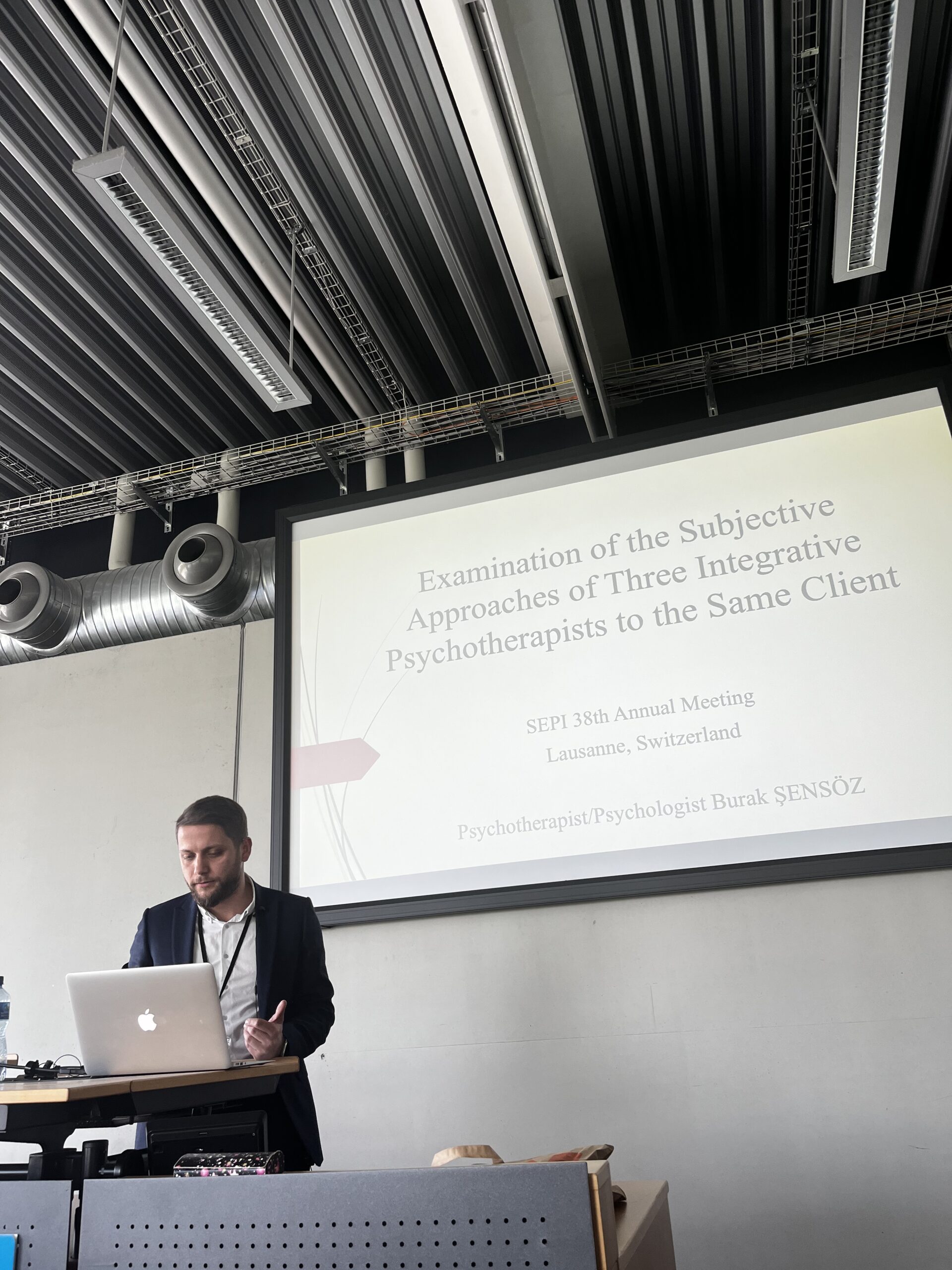2023’te Vancouver-Kanada’da moderatör ve tartışmacısı olarak yaptığım sunumların kısa özetleri aşağıdadır.
Moderator:
Burak Sensoz
pskburaksensoz@gmail.com, Institute of Integrative Psychotherapy, Turkey.
Literature has been continuously defined in different ways from past to present. The fact that literary works push and exceed the limits of these definitions in their own fields can be shown among the reasons for this situation (Menteşe, 2008) There is a definition that is generally encountered in dictionaries, encyclopedias and textbooks: It is a means of expressing events, thoughts, feelings and dreams in an aesthetic way through language (Türk Dil Kurumu, 2013).
Literary texts educate and give pleasure by reflecting the emotion, phenomenon or situation in line with their content, regardless of their purpose, genre or the movement in which they are influenced (Aras, 2017). Literature, a type of art, is a way of turning the ordinary into extraordinary experience. It can be considered as one of the best ways for a person to know his inner self and realize himself. All these can be a way of reconciling people in accordance with their endless contradictions, impulses and demands of society (Filiz, 2016). Man’s self-expression through art dates back to ancient ages. Just as early humans reflected their psychological states by drawing pictures on cave walls, mummifying the dead, and carving ceremonial masks; it is possible to see evolved versions of the same effect in painting or other branches of art in modern times. When the literary works, in which the inner world of man and the structure of society can be observed most clearly, are examined, they can give a lot of information about both the period in which they were written and the inner world of the author. In this context, examining the periods in the history of Turkish Literature will shed light on our study.
Given that Turkish Literature consists of oral and written texts produced in Turkish, its first products date back to the end of the 13th century and the beginning of the 14th century (Hamit Kemal, 2007). Turkish Literature is examined in three main sections: Pre-Islamic Turkish Literature, Turkish Literature Developing Under the Influence of Islam and Turkish Literature Developing Under the Influence of the West. Pre-Islamic Turkish Literature is divided into two as oral and written. The Turkish Literature Developing Under the Influence of Islam consists of two periods, namely Divan and Folk Literature; and lastly, Tanzimat, Servet-i Fünun, Fecr-i Ati, National Literature and Republican Literature are the parts of the Turkish Literature Period Developed under the Western Influence. Along with the understanding of literature that has developed and changed within time, the transformation of Turkish society has also taken place. When we take a look at all the changes, the impact of the society’s change on the artist, who is an individual of the society, and its influence on literary works and periods are inevitable. In this case, when considering the individual in psychotherapy, the structure of the society in which the individual lives and the events and situations that have developed in history should be taken into consideration.
Psychotherapy is all techniques and methods aimed at resolving emotional conflicts and reducing anxiety, tension and depression arising from these conflicts, increasing mental satisfaction and maturing interpersonal relationships (Güleç, 1993). The history of psychotherapy has also changed and developed along with the process. From past to present, new additions or changes have been made about the theories and human structure constantly. At the point reached today, one-person therapies in which all theories are integrated, whether from the first or the second source, have evolved into integrative psychotherapies, which have evolved in a process where subjectivity and context are the main tool, ranging from two-person therapies to systems therapies, from chaos theories where system therapies are handled within the need of transcendence (Özakkaş, 2018). In this study, an analysis will be made in the context of integrative psychotherapy through the works of the same author, who has works from different periods. The reflections of periodic changes in the fields of language, character and society in the author’s perspective, the work, the subject in the work, the characteristics of the characters and the society in which the characters live will be reviewed.
Burak Sensoz
pskburaksensoz@gmail.com, Institute of Integrative Psychotherapy, Turkey.
On March 27, 1889, Yakup Kadri Karaosmanoglu was born in Cairo. He was the son of Abdülkadir Bey, a member of the Karaosmanoglu family that first established a name for itself in the Manisa region in the 17th century. Ikbal Hanim, a woman from Ismail Paşa’s palace community, was his mother. He was raised in Cairo until he was six years old, at which point his family moved to Manisa, their home country. After completing his primary education in Manisa, the family relocated to Izmir in 1903.
Karaosmanoglu was one of the patrons of Ikdam during the Turkish Conflict of Freedom and after the foundation of the Republic of Turkey in 1923, a delegate of Manisa to the Fabulous Public Gathering from 1931 to 1934. The Tan newspaper was founded in 1935 and had Karaosmanoglu as its founding editor-in-chief until 1938. Then, from then until 1955, he was Turkey’s ambassador in several European and Middle Eastern capitals.
In 1957, after his return to Turkey, he was the editor of Ulus. Following the coup d’état of 1960, he served as a member of the constituting assembly of the National Unity Committee in 1961. From 1961 to 1965, he served as a Manisa representative in the Grand National Assembly, his final political position. He was appointed chairman of the Anadolu Agency in 1966.
On December 13, 1974, Yakup Kadri Karaosmanoglu passed away at the Gülhane Military Medical Academy in Ankara. He was buried in Istanbul’s Yahya Efendi Cemetery alongside his mother’s remains.
Yakup Kadri Karaosmanoglu wrote the modern Turkish classic Nur Baba, which gives a unique look at Sufi lodges, social issues, and intellectual life in early 20th-century Istanbul.
It is a story of illicit romance and spiritual inquiry, based on Karaosmanoglu’s own experiences with Islamic mystical orders. It is about a colorful lodge of Sufi dervishes led by Nur Baba, a charismatic but morally questionable spiritual master. The story centers on his attempts to seduce a beautiful married woman from an elite family and her dramatic experiences in a Sufi community. The lavish mansions of Istanbul’s affluent families and a Sufi lodge where the wealthy and poor mix alternately serve as the setting. It captures the zeitgeist of early twentieth-century modernist thinkers who debated the public roles of women in a society that was rapidly modernizing and addressed issues of gender, morality, and religious bias.
In this review, Yakup Kadri Karaosmanoglu’s keep going book, “Nur Baba”, written in 1914, was dissected with regards to Integrative Psychotherapy. The author’s life story, the family and society in which he was born, as well as the social and cultural events of the time, were taken into consideration during the course of the book’s analysis. This was done gradually within the framework of the congress theme, which was “Individuals, Groups, and Subjectivity in Context.”
The character attributes of the characters, significant life altering situations and Yakup Kadri’s approach to taking care of these characters were contrasted and the original ‘Hep O Sarki’, which he wrote in 1922. As a consequence of this, it has been observed that the individual changes and transforms the society, whereas the society changes and transforms the individual, and the processes that lead to this transformation play a very significant role in his works. The novel “Hep O Sarki” which Yakup Kadri wrote in 1922, was compared to the characters’ personality traits, significant life events, and the way he handled them. As a consequence of this, it has been observed that the individual changes and transforms the society, whereas the society changes and transforms the individual, and the processes that lead to this transformation play a very significant role in his works.

